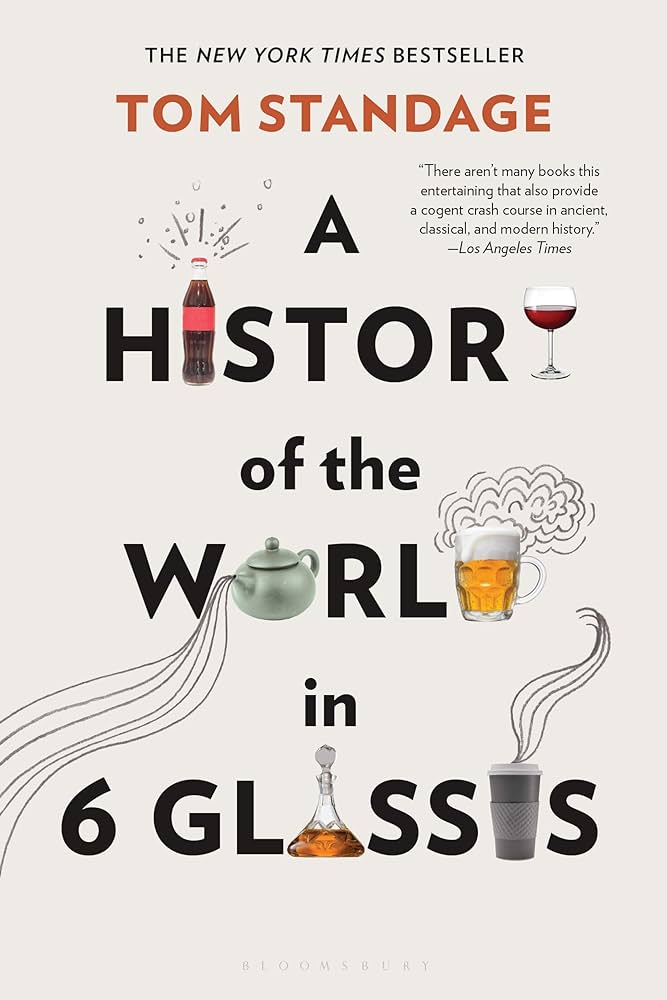
A History of the World in 6 Glasses
Author: Tom Standage Category: History Published: May 31, 2005 Language: English File Size: 2.9 MB Tags: Food | Historical | History | Nonfiction | School | Science | World history |Theme:
A History of the World in 6 Glasses by Tom Standage, presents a vision of world history, telling the story of humanity from the Stone Age to the twenty-first century through the lens of beer, wine, spirits, coffee, tea, and cola.
Famous Quotes:
Beer, it is safe to say, was instrumental in the formation of civilization.
Civilizations had been built on beer from the dawn of history, in Mesopotamia and Egypt, China and the Americas.
The discovery of wine, like the discovery of fire, was a happy accident.
The Greeks valued the ability to hold one’s liquor as a sign of moral and intellectual superiority.
The invention of the straw revolutionized how we drink, making it easier and more hygienic.
The sugar trade was built on the backs of millions of slaves, who endured unimaginable suffering.
Rum played a central role in the transatlantic slave trade, becoming currency for the exchange of human lives.
Coca-Cola became the embodiment of American consumer culture, with its iconic logo and addictive formula.
Soft drinks, like Coca-Cola, became synonymous with American capitalism and global influence.
The water crisis in many parts of the world highlights the importance of clean and accessible drinking water.
Water, the most basic and essential of all drinks, has shaped the course of human history.
The pursuit and control of water resources has been a cause of conflict throughout history.
The development of refrigeration revolutionized the way we consume and preserve beverages.
More Lines:
The invention of the glass bottle allowed for mass production and distribution of drinks.
Drinking habits and preferences reveal a lot about a society’s values and priorities.
Prohibition in the United States showed the futility of attempting to regulate and control alcohol consumption.
The globalization of beverages has led to cultural exchange and the spread of ideas.
Beverages have shaped and influenced human behavior, from socializing to religious ceremonies.
The invention of the champagne bottle and the carbonation process revolutionized the wine industry.
The introduction of tea to British society transformed the habits and rituals of daily life.
The coffeehouse culture in Europe fostered an environment of intellectual curiosity and exchange.
Back
